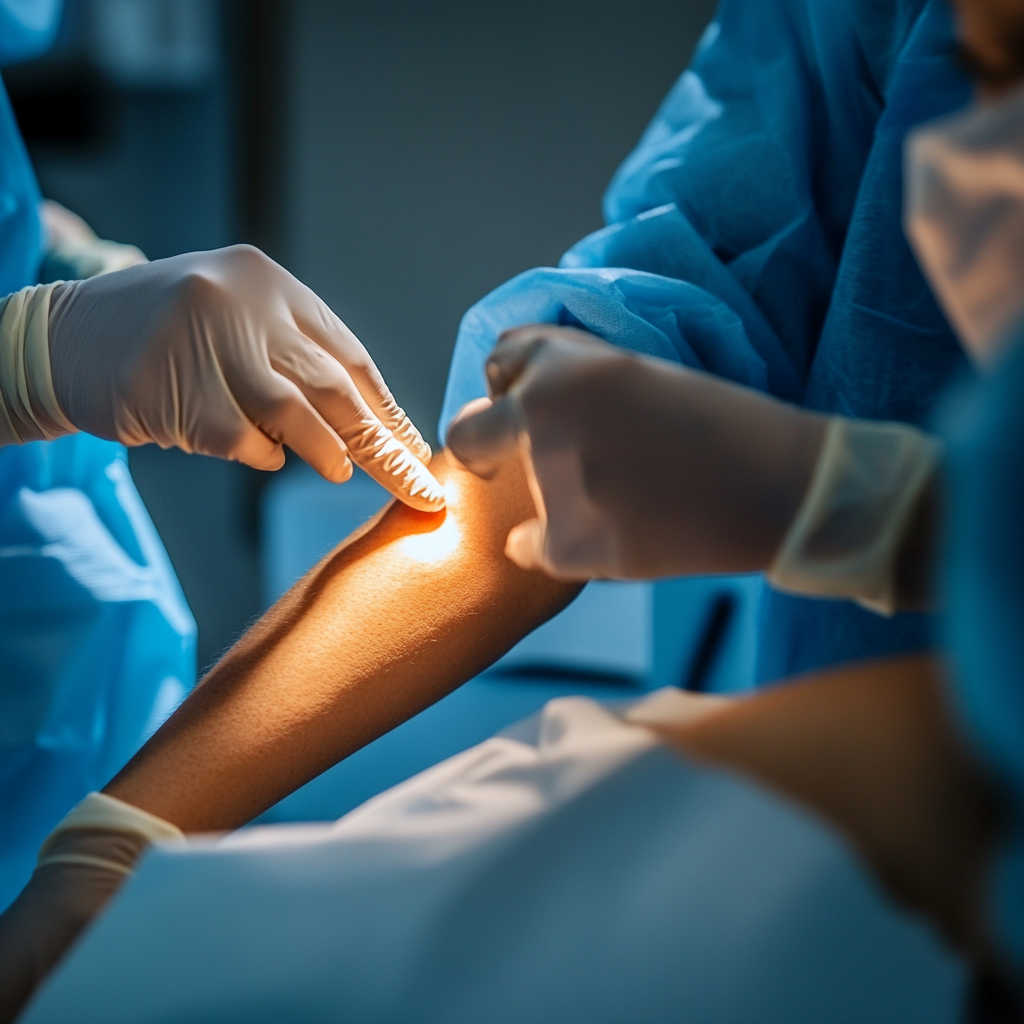Signs of Cancer: Understanding and Navigating the Warning Symptoms
In today’s world, being aware of the signs of cancer can make a tremendous difference in diagnosis and treatment outcomes. Whether we are talking about the early signs of cancer or watching out for more advanced developments, vigilance is key. This includes staying alert to unexplained weight loss and other indications, such as blood in stool, which might point to a serious underlying condition. With timely cancer screening UK programs, individuals have a greater chance of detecting problems early and pursuing the best possible treatments.
Table of Contents
- The Importance of Recognizing Signs of Cancer
- Spotting early signs of cancer: A Comprehensive Overview
- Addressing unexplained weight loss in Cancer Patients
- Understanding blood in stool and Its Implications
- The Importance of cancer screening UK
- When to See an Oncologist
- Conclusion
1. The Importance of Recognizing Signs of Cancer
The signs of cancer are often subtle, gradually creeping into everyday life without causing immediate alarm. For many people, recognizing these changes can be challenging, especially when they appear no more worrisome than a common ache or tiredness. Nonetheless, it is vital to identify the signs of cancer early to improve the odds of effective treatment. Studies have shown that individuals who remain vigilant about noticing the early signs of cancer—often called cancer symptoms to watch, initial indications of cancer, or beginning cancer clues—can significantly boost their chances of beating the disease.
Cancer is a broad term encompassing a variety of conditions, all of which involve abnormal cell growth. These abnormal cells may spread to surrounding tissues and, in advanced stages, can migrate to distant parts of the body. Because each type of cancer has unique characteristics, the signs of cancer may differ based on the cancer’s location and stage. Nevertheless, certain universal red flags exist. For example, persistent fatigue, unexplained weight loss(sometimes referred to as sudden weight drop, inexplicable weight reduction, or unexpected body mass decrease), and blood in stool (also known as rectal bleeding, fecal blood, or bloody stool) deserve careful attention.
Early identification is where regular cancer screening UK programs—sometimes referred to as UK-based cancer checks, cancer detection programs in the UK, or national cancer tests in Britain—come into play. Participating in routine screening helps individuals catch potential problems before they become more serious. These scheduled check-ups often offer the best safeguard against the silent progression of many types of cancer.
2. Spotting early signs of cancer: A Comprehensive Overview

One crucial step in cancer prevention is knowing how to spot the early signs of cancer. The presence of lumps, unexplained fevers, excessive bruising, persistent cough, or noticeable changes in the skin can all be indicators that something is amiss. These early signs of cancer can overlap significantly with the broad signs of cancer discussed throughout this article. Still, recognizing them as soon as they appear often makes a vital difference.
Recognizing Subtle Clues
Symptoms such as fatigue, fever, or a sudden skin growth might appear benign or might be blamed on a hectic lifestyle. However, early detection relies on closely monitoring these subtle changes. Keep watch not only for physical manifestations but also shifts in mental and emotional well-being. Ongoing anxiety or depression, for instance, could be the body’s response to an underlying health issue, including the signs of cancer.
Pain and Discomfort
Pain can be one of the early signs of cancer, though it is also common in many non-cancerous conditions. Chronic pain or discomfort in a specific region, like the abdomen or chest, might hint at a localized cancer. Abdominal pain could connect to a gastrointestinal issue, sometimes tied to blood in stool. Likewise, chest discomfort might signify changes in lung tissue. Always consult a healthcare professional if symptoms persist or escalate.
3. Addressing unexplained weight loss in Cancer Patients

Among the more prevalent signs of cancer, unexplained weight loss often stands out. This sudden weight drop, inexplicable weight reduction, or unexpected body mass decrease can be alarming for those who experience it. While several conditions can cause a person to lose weight unexpectedly—like hyperthyroidism or chronic infections—unexplained weight loss is commonly associated with various types of cancer, especially those of the digestive system.
Why Unexplained Weight Loss Occurs
Cancer cells demand a considerable amount of energy to sustain their rapid growth. Consequently, the body’s metabolism may speed up in an attempt to support these cells, often leading to unexplained weight loss. In certain situations, cancer can disrupt hormones or affect how the body processes nutrients, causing significant weight drops. If you notice a repeated, sustained loss of body weight without any obvious reason, it could be one of the serious signs of cancer.
Ensuring Proper Nutrition
When dealing with unexplained weight loss, focusing on a nutrient-rich diet becomes essential. Balanced meals high in protein, vitamins, and minerals support the body’s immune system, providing strength for potential treatments. Dieticians and nutritionists often work alongside oncologists to develop personalized dietary plans that address nutritional deficiencies while controlling the disease. Regular monitoring of body weight, appetite, and overall health can help capture new developments, reinforcing early detection of other possible signs of cancer.
4. Understanding blood in stool and Its Implications
Observing blood in stool, also known as rectal bleeding, fecal blood, or bloody stool, may be alarming and is often one of the more noticeable signs of cancer, specifically colorectal cancer. However, other conditions like hemorrhoids, inflammatory bowel disease, or gastrointestinal infections could also cause blood in stool. That said, it is always safer to consult a healthcare professional when spotting any blood during bowel movements.
Possible Causes of Blood in Stool
Any lesion, ulcer, or abnormal growth in the gastrointestinal tract has the potential to bleed. While not all instances of blood in stool indicate cancer, the risk is significant enough to justify immediate medical evaluation. Advanced cancers in the colon or rectum might produce other associated signs of cancer, such as changes in bowel habits, persistent abdominal pain, or a feeling of incomplete bowel movements.
Importance of Testing
Early testing helps differentiate between benign causes and malignant conditions. Diagnostic approaches like colonoscopy can be vital in identifying polyps or tumors. These procedures are often included in cancer screening UK programs, helping doctors detect issues before they escalate. By being proactive about testing, patients can either gain peace of mind or begin cancer therapy sooner, substantially improving treatment outcomes.
Image 4 (Near Conclusion)
- Midjourney Prompt: “A realistic photo of a laboratory test result showing positive occult blood, with a doctor’s hand pointing to it in a well-lit medical office”
- Recommended File Name: understanding-blood-in-stool.jpg
- Alt Text: Lab results indicating the presence of blood in stool
5. The Importance of cancer screening UK
Medical professionals around the globe frequently emphasize the role of screening in detecting the signs of cancer early. In Britain, cancer screening UK initiatives—often referred to as UK-based cancer checks, cancer detection programs in the UK, or national cancer tests in Britain—are structured to identify potential problems in their earliest stages. By enrolling in these programs, individuals who do not display obvious early signs of cancer still have the chance to discover hidden issues.
Common Screening Methods
Screening initiatives vary by age, family history, and specific risk factors. Mammograms help with early breast cancer detection, while colonoscopies look for any blood in stool or colon growths. There are also tests like the PAP smear for cervical cancer and PSA tests for prostate cancer. When combined with routine physical exams, these check-ups provide a comprehensive view of a person’s overall health and can detect the signs of cancer before obvious symptoms emerge.
Benefits of Early Detection
Catching cancer early generally leads to more treatment options, improved response rates, and potentially less invasive procedures. Moreover, the psychological benefits of taking a proactive stance toward personal health should not be overlooked. Knowledge is power, and by participating in cancer screening UK programs, you empower yourself to either confirm your good health or embark on a treatment path without delay.
6. When to See an Oncologist
Knowing when to seek professional help is crucial in confronting the signs of cancer. Here is a paraphrased and integrated overview of important considerations about scheduling a visit to an oncologist:
Cancer can affect any organ or tissue within the human body. At times, it develops without producing noticeable symptoms, particularly during its earliest stages. Specialists advise seeking an oncologist even if no obvious problems are present, especially for individuals who meet certain risk criteria or experience potential early signs of cancer.
Reasons to Consult an Oncologist
An oncologist specializes in understanding the origin, progression, and treatment of benign and malignant tumors. They diagnose diseases, differentiate them, determine treatment approaches (including anti-cancer drugs), and study whether benign tumors have the potential to become malignant. Cancer can initially stay localized in one organ but may spread over time to bones, lymph nodes, or blood circulation. As the early stages can often be symptom-free, experts recommend making an oncologist appointment under specific circumstances.
Below are some potential symptoms—at different stages of development—when you should consider visiting an oncologist:
- Internal bleeding of unknown origin, such as blood in urine, blood in stool, or unexplained bleeding from the nose or reproductive organs.
- Rapid or unexplained weight loss for no apparent reason.
- The appearance of new skin growths.
- Noticeable changes in the shape or size of moles, polyps, or warts.
- Tissue thickening in certain parts of the body, notably in the breasts.
- Lymph node enlargement in the groin, armpits, or neck.
- Persistent fever, elevated temperature, or body pains without a clear cause.
- Worsening vision or hearing, recurring headaches, or loss of coordination.
- Consistent bowel movement disturbances.
- Abnormal discharge from the breasts or rectum.
- Weakness, declining well-being, nausea, and reduced appetite.
- Discomfort or pressure in specific organs, such as the throat, chest, abdomen, or groin.
Additional Recommendations
Make an appointment with an oncologist in the following cases:
- As a follow-up to previous cancer treatment, at least every six months or more frequently if advised.
- Women over 40–45 years old and men over 45–50 years old should schedule routine check-ups at least once every six months.
- When diagnosed with conditions like mastopathy, polyps in the intestines, or cirrhosis of the liver.
- If a close family member has had cancer.
- If you work in chemical production or environments with ecological risks.
- If you frequently sunbathe—either outdoors or in tanning beds.
- If you smoke cigarettes. Regular checks are highly recommended because the habit is directly linked to higher cancer rates.
Consultation Steps
Patients often come to an oncologist after being referred by another doctor who suspects cancer. The oncologist’s primary goal is to determine if a tumor is present and understand its properties. A first check-up typically includes a discussion of symptoms and medical history, a physical exam, and palpation of at-risk areas (including regions likely to host metastases). Laboratory tests and more specialized investigations like biopsies help identify tumor types. A second appointment usually involves the oncologist interpreting these results and devising a treatment plan.
Supplementary Therapies
During cancer treatment, certain patients use supportive medications, such as Vidatox. This substance is believed to help maintain the immune system and detoxify the body from the effects of therapy. It may improve a patient’s quality of life and, in some cases, extend survival. Vidatox can synergize with anti-cancer treatments by focusing on tumors while enhancing overall resistance.
7. Conclusion
Proactivity and awareness are your strongest allies in identifying the signs of cancer. Recognizing the early signs of cancer—along with being attuned to serious symptoms like unexplained weight loss or blood in stool—can significantly bolster your treatment options. By participating in cancer screening UK programs and visiting an oncologist if concerns arise, you are taking significant steps to safeguard your well-being.
In many respects, cancer is unpredictable. However, the combination of regular screenings, knowledgeable health practitioners, and personal vigilance about the signs of cancer can help ensure that if trouble does appear, it is identified promptly. Early detection often equates to more successful treatment, less physical strain, and a brighter outlook for a healthy life.


